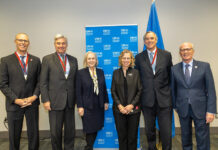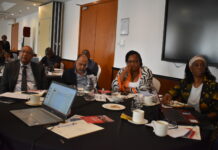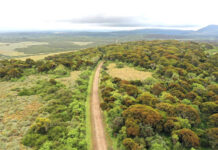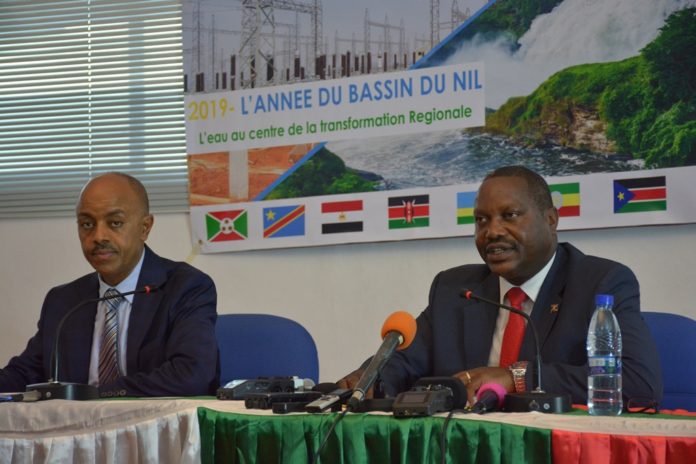
By Nina Gabrielle, BUJUMBURA
The Government of Burundi has put in place a law prohibiting the planting of tree species that use a lot of water in marshes and around water sources in order to preserve water.
Speaking at the launch of 2019 as the ‘Year of the Nile Basin’ in Bujumbura, Dr. Deo-Guide Rurema, the Chairman of the Nile Council of
Ministers and Burundi Minister of Environment, Agriculture and
Livestock said his government was on the right track in protecting the
the common heritage that is the River Nile.
“The decree prohibiting the use of plastic bags is being implemented. This
will help ensure the quality of water and reduce microplastics in lakes and
rivers, which will protect the biodiversity of these ecosystems,” he said.
The Burundi countryside is peppered with eucalyptus trees, which are
known to induce soil degradation, cause the decline of groundwater level, and a decrease of biodiversity.
The decision to declare 2019 as the Year of the Nile Basin resulted from the 26th Annual Nile Council of Ministers meeting held in August 2018 in Bujumbura, which recognized that River Nile plays an integral part in
achieving not only water security but also food and energy security as well as eradicating poverty for the people of the Nile Basin region.
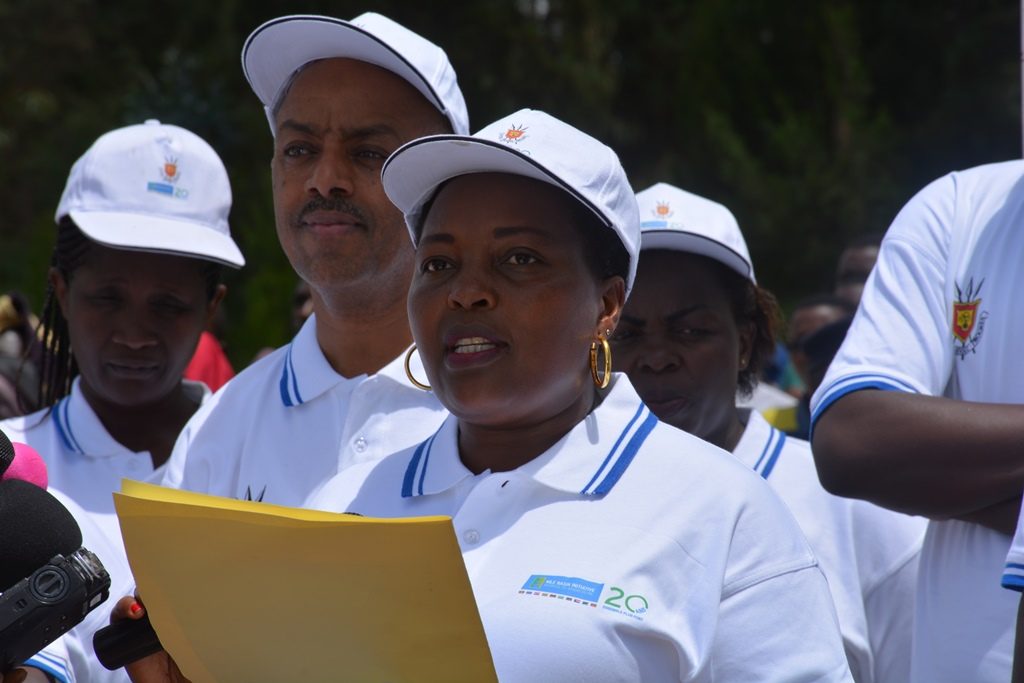
Ms. Renilde Ndayishimiye, Chairperson Nile Technical Advisory Committee, at the launch of ‘Year of Nile Basin’ in Rutovu, the southernmost source of the Nile in Burundi
The Nile waters are key to achieving the regional development agenda and
enabling regional integration. ‘The Year of the Nile Basin’ under the motto: ‘Putting Water at the Heart of Regional Transformation’, is dedicated to highlighting the role that transboundary water must play in the conversations Nile Basin countries have about the present and future regional development.
The emphasis is on ensuring equitable utilization and win-win benefits for society and the environment alike. Ultimately, it will also contribute to
Also present at the launch was the Deputy Executive Director of the Nile
Basin Initiative Secretariat, Dr. Abdulkarim Seid, who called on Nile Basin
countries to work together to overcome the ever-growing challenges of
increasing water variability, ever-growing water demand and multiple impacts of climate change.
Over the last 20 years, the Nile Basin Initiative (NBI), has been and is the
only basin-wide institution including all the Nile Basin countries. The
NBI, established on February 22, 1999, has helped to nurture the culture
of water cooperation in the Nile Basin, providing a neutral platform for
countries to discuss how to jointly take care of and utilize the shared
water resources for the benefit of all and to address the common
challenges which no country can tackle alone.
Throughout 2019, the Nile Basin Initiative and the Member States will play
host to key events including the 20

The launch of the State of River Nile Basin Report 2018 and launch of the 20th-anniversary publication on February 22, 2019, among other activities.
The launch was crowned off with a tree planting ceremony in Rutovu, the
southernmost source of the Nile in Burundi, where delegates planted trees
meant to rejuvenate the soils and protect the biodiversity around the
source of the Nile.
The launch was organized by the government of Burundi in collaboration
with the Nile Basin Initiative and with support from the European Union
and the Federal German government.
The Nile Basin Initiative is the only basin-wide institution providing a
neutral platform to the 10 Member States, to discuss how to jointly take
care of and utilise the shared Nile Basin water resources for the benefit of
all and to address the common challenges such as food, water and energy
security as well as the negative impacts of climate change, which no
country can tackle alone.

